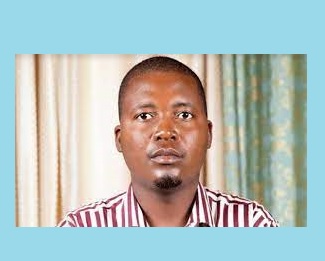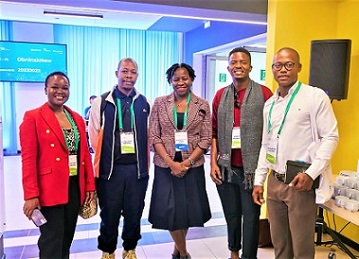
Today, 2 November, is a day specifically set aside to commemorate journalists all over the world who work under difficult conditions imposed by governments, groups or individuals with political or economic power.
The day also serves as an occasion to call for an end to impunity for crimes against journalists.
While Namibia stands out as one country which has a good track record in the respect for journalists, some other countries are guilty of crimes against journalism.
One such country is Zimbabwe.
At least this is according to Media Institute of Southern Africa (MISA) Zimbabwe chairperson Mr Golden Maunganidze.
Maunganidze said today in a statement that this year’s commemorations of the International Day to End Impunity for Crimes Against Journalists (IDEI) come at a time when Zimbabwe is witnessing a worrying increase in the number of cases involving the assault of journalists at political rallies and gatherings.
Some of the journalists sustained injuries and also lost their equipment during these unlawful attacks while the perpetrators remain free despite reports being filed with the police in some of the instances.
“It is even more worrying that some of the cases involve the assault of journalists by members of the police who have the constitutional obligation to protect and secure the lives and property of the citizens,” Maunganidze says.
MISA Zimbabwe is therefore worried that these crimes against journalists are likely to increase as the country gets into the election mode ahead of the 2023 elections if corrective measures are not taken as a matter of urgency.
“The security and safety of journalists conducting their lawful professional duties is of paramount importance as provided and protected under Section 61 of the Constitution on freedom of expression and freedom of the media.
“A free and secure operating media environment is a key ingredient to socio-economic development and prosperity.
“It is also pivotal in the enjoyment and exercise of citizens’ right to access to information for informed decisions and choices on matters affecting their daily lives and wellbeing, and more so during election campaigns,” he states.
This year’s IDEI commemorations which coincide with the 10th Anniversary of the UN Plan of Action on the Safety of Journalists and the Issue of Impunity, offers immense opportunity for all key stakeholders to come up with tangible measures to ensure the safety of journalists and media workers in Zimbabwe, Maunganidze notes.
“In so doing, we should be guided and draw courage of conviction from the UN Secretary-General Antonio Guterres’ message which reads:
“‘I urge member states and the international community to stand in solidarity with journalists around the world today and every day, and to demonstrate the political will to investigate and prosecute crimes against journalists and media workers with the full force of the law.’
“We therefore reiterate our earlier calls for the Government, through key stakeholders such as the Ministry of Information, Publicity and Broadcasting Services, Zimbabwe Media Commission, the Ministry of Home Affairs, and the Zimbabwe Republic Police, to come up with concrete mechanisms to curb these worrying media freedom violations.
“On the other hand, political parties should ensure the security of journalists and send strong messages to their unruly supporters that the harassment or assault of journalists will not be tolerated as the culprits will be held accountable.”
However, Maunganidze advices that journalists should conduct risk assessments before covering potentially dangerous assignments as provided for in the journalism safety and security manuals to protect themselves from potential harm to their lives.
“Fundamentally, journalists and all media workers, should conduct their duties professionally and mindful of the fact that media freedom as provided by the Constitution, excludes: incitement to violence, advocacy of hatred or hate speech, malicious injury to a person’s reputation or dignity, and malicious or unwarranted breach of a person’s right to privacy.
“Perpetrators of crimes against journalists and media workers should thus be brought to book as this will go a long way in sending a strong and clear message that: Journalism is Not a Crime!” says Maunganidze.
In the photo: MISA Zimbabwe chairperson Golden Maunganidze.







